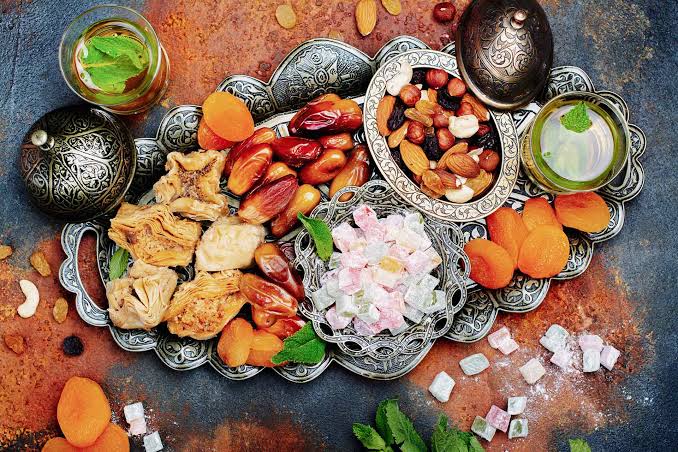Lifestyle
Ramadan: The Right Way To Break Your Fast

During the holy month of Ramadan, which occurs on the ninth month of the lunar-based Islamic calendar, all Muslims are required to abstain from food and drink from dawn to dusk for 30 days.
Because Ramadan shifts approximately 11 days earlier each year on the solar-based Gregorian calendar, Muslims experience Ramadan in different seasons throughout the course of their lives.
READ ALSO: Ramadan: I Remembered I Was Fasting After Eating Fufu – Toyin Lawani
The act of fasting is meant to remind Muslims of the less fortunate and to reinforce the need to be thankful. As one of the five pillars, or duties, of Islam, fasting during the month of Ramadan is mandatory for all healthy adult Muslims. Children who have not reached puberty, the elderly, those who are physically or mentally incapable of fasting, pregnant women, breastfeeding mothers and travelers are exempt.
Fasting during Ramadan means abstinence from all food or drink, including water and chewing gum, from dawn to sunset. It is recommended that before sunrise, Muslims eat a prefast meal known as suhur. This meal often resembles breakfast, but in some cultures it may include more dinner-like foods. After sundown, Muslims break their fast with iftar, a meal which usually starts with dates and water or milk, followed by dinner. Muslims are permitted to snack at night between those two meals, and hydration is encouraged, especially when Ramadan falls during summer.
For suhur, iftar and snacks, Muslims can more easily make it to sundown by eating high-fiber meals to sustain satiety over longer periods, fruits and vegetables to maintain electrolyte stores, and plenty of fluids to maintain hydration. Muslims should also limit fried foods and sugary sweets, the latter of which is a common cultural tradition among many ethnicities during the holy month.
One of the most common mistakes is to eat snacks after iftar in order to suppress your appetite and then go to sleep, skipping suhoor and staying hungry until the next iftar. You should always eat during suhoor, preferably right before fasting starts. Eating before bedtime or avoiding eating during suhoor may cause serious low blood sugar problems and dehydration the next day. As a result, you could feel dizzy and distracted during the day.
So, what should you eat during suhoor to feel more energetic throughout the day? A light, healthy and filling breakfast is a great option. Before sunrise, you can eat dairy products and fresh vegetables such as cheeses, eggs, tomatoes, and cucumbers. Additionally, you can always enjoy a soup, vegetables cooked in olive oil and fruits.
This combination meets your body’s daily energy, vitamin and protein needs. In addition to fruit, you should eat whole wheat bread and pasta, couscous or bulgur wheat rich in carbs and fibers, which are good for your digestive system.
Dried fruits like dates, walnuts and almonds are also great food supplements. They can make you feel full for long hours throughout the day. It’s not just the variety of food you eat, but also the portions that play a decisive role in your nutrition. You should choose smaller portions and eat wisely.
After Ramadan, Muslims celebrate a three-day holiday called Eid-ul-Fitr. After this Eid (“celebration”), Muslims pray the holiday prayer in congregation in the morning, visit family and friends, and celebrate over food, gifts and activities for children.
Send Us A Press Statement Advertise With Us Contact Us